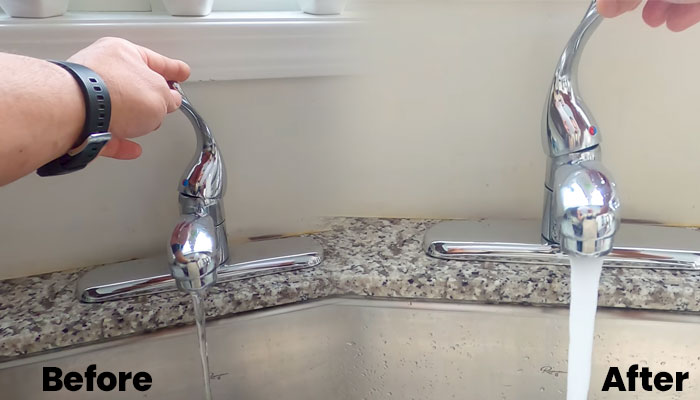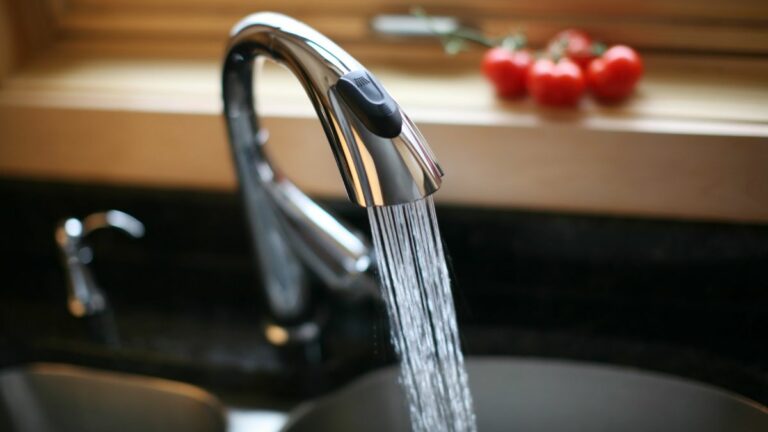What Is the Life Expectancy of a Water Heater
You can expect your traditional tank water heater to last around 8 to 12 years, while tankless models often go 20 years or more with proper care. Factors like water quality, maintenance, and usage affect its lifespan. Watch for noises, leaks, or temperature changes as signs of trouble. Regular upkeep like flushing and checking the anode rod helps extend life. Keep exploring to discover tips and signs to know when it’s time to replace yours.
Average Lifespan of Different Types of Water Heaters
Although water heaters vary in design and fuel source, knowing their average lifespans helps you plan for timely replacements. Traditional tank water heaters, whether powered by gas or electricity, typically last about 8 to 12 years. Gas models often edge out electric ones slightly in longevity due to their heating efficiency.
Tankless water heaters, which heat water on demand, usually offer a longer lifespan, averaging 20 years or more. Heat pump water heaters, known for energy efficiency, can last around 10 to 15 years.
Solar water heaters, depending on system quality and maintenance, often function well for 15 to 20 years. Understanding these averages lets you anticipate when to inspect or replace your unit, ensuring consistent hot water without unexpected breakdowns.
Factors That Affect Water Heater Longevity
Since water heaters face different operating conditions, several factors directly influence how long yours will last. First, water quality plays a huge role—hard water with high mineral content can cause sediment buildup, reducing efficiency and lifespan.
Second, how often you maintain your heater matters; flushing the tank and checking the anode rod regularly prevents corrosion.
Third, the temperature setting affects wear; setting it too high stresses components and shortens life.
Fourth, your usage patterns impact longevity—constant heavy use can wear out parts faster, while moderate use prolongs life.
Finally, installation quality and the unit’s brand also affect durability.
Signs Your Water Heater May Be Failing
When your water heater starts showing unusual noises, inconsistent water temperature, or leaks, it’s a clear sign you need to take action. You might hear rumbling or banging sounds, indicating sediment buildup inside the tank.
If your water temperature fluctuates unexpectedly, it suggests the heating element or thermostat might be failing. Spotting rusty or discolored water could mean corrosion is affecting your unit.
Leaks around the base or fittings signal that seals or the tank itself may be compromised, risking water damage. Additionally, if your water heater struggles to produce enough hot water or takes longer than usual to heat, it’s time to consider inspection or replacement.
Catching these signs early can prevent sudden breakdowns and costly repairs.
How Maintenance Impacts Water Heater Life
If you want your water heater to last longer and perform better, regular maintenance is essential. By flushing the tank annually, you remove sediment buildup that can cause corrosion and reduce efficiency.
Checking the anode rod every couple of years helps prevent rust from forming inside the tank, extending its lifespan. You should also inspect the temperature and pressure relief valve to ensure it works properly, preventing dangerous pressure buildup.
Additionally, keeping the area around your water heater clean and free of debris allows it to operate safely and efficiently. Skipping these simple tasks can lead to premature failure, costly repairs, or replacement.
Staying on top of maintenance helps you avoid unexpected breakdowns and ensures your water heater runs smoothly for years.
Comparing Tankless vs. Traditional Water Heaters
Maintaining your water heater well can extend its life, but choosing the right type of water heater also plays a big role in performance and longevity. Traditional tank water heaters typically last 8 to 12 years, while tankless models often reach 20 years or more.
If you want a longer-lasting option that heats water on demand and saves space, a tankless heater might be your best bet. However, tankless units usually come with higher upfront costs and require more complex installation.
Traditional tanks store hot water for immediate use but can lose efficiency over time due to sediment buildup. Your choice depends on your budget, household needs, and willingness to maintain the system.
Both types benefit from regular maintenance to maximize lifespan and efficiency.
Common Causes of Water Heater Failure
Although water heaters are built to last, several common issues can cause them to fail prematurely. One major culprit is sediment buildup. Over time, minerals in your water settle at the tank’s bottom, reducing efficiency and causing overheating.
Corrosion is another frequent problem; it eats through the tank walls, leading to leaks. If your anode rod wears out, it can no longer protect the tank from rust, accelerating damage.
Faulty thermostats or heating elements can cause inconsistent water temperature or complete failure.
Lastly, improper installation or poor maintenance can significantly shorten your water heater’s lifespan. Being aware of these common causes helps you spot problems early and avoid unexpected breakdowns.
Tips to Extend the Life of Your Water Heater
To keep your water heater running efficiently and avoid costly repairs, you should perform regular maintenance and address issues promptly.
Start by flushing the tank once a year to remove sediment buildup, which can reduce efficiency and cause damage.
Check the anode rod every couple of years and replace it if it’s heavily corroded to prevent tank rust.
Set your thermostat to 120°F to avoid overheating and extend the unit’s lifespan.
Inspect the pressure relief valve annually to ensure it’s functioning correctly.
Also, insulate your water heater and pipes to reduce heat loss and improve efficiency.
Finally, fix leaks or strange noises immediately to prevent minor problems from turning into major repairs.
These simple steps will help you get the most out of your water heater.
When to Replace Your Water Heater
Even if you keep up with regular maintenance, every water heater will eventually need replacement. You should consider replacing it if it’s over 10-15 years old, especially if it’s gas-powered, as older units become less efficient and more prone to leaks.
If you notice rusty water, strange noises, or inconsistent water temperature, those are clear signs your heater is failing.
Frequent repairs also indicate it’s time to invest in a new unit. Upgrading can save you money on energy bills and prevent sudden breakdowns.
Don’t wait for a complete failure; planning a replacement when you spot these warning signs will keep your home comfortable and avoid costly emergency repairs.
Regularly check your water heater’s condition to know when it’s time to act.
Frequently Asked Questions
How Much Does It Cost to Install a New Water Heater?
You’ll typically spend between $800 and $1,500 to install a new water heater, depending on the type and labor costs. Choosing tankless models or extra features can increase the price.
Are There Energy-Efficient Water Heaters Available?
Yes, you’ll find energy-efficient water heaters like heat pump models and tankless systems. They use less energy, save money on bills, and reduce your environmental impact. Upgrading is a smart choice for efficiency.
Can I Repair a Leaking Water Heater Myself?
You can repair minor leaks yourself if you’re comfortable with plumbing basics, but for major leaks or gas models, it’s safer to call a professional to avoid risks like water damage or gas leaks.
What Size Water Heater Do I Need for My Home?
You’ll need a water heater sized by your household’s demand—usually 40-50 gallons for 2-4 people. Consider peak usage and recovery rate to ensure you always have enough hot water when you need it.
Do Water Heaters Come With Warranties?
Yes, water heaters usually come with warranties, often lasting 6 to 12 years. You should check the specific terms when buying, as coverage varies by brand and model, protecting you against defects and early failures.
Conclusion
Understanding your water heater’s life expectancy helps you avoid unexpected breakdowns and costly repairs. By recognizing the signs of failure and maintaining your unit regularly, you can extend its lifespan significantly. Whether you have a traditional tank or a tankless model, proper care makes all the difference. Keep an eye on common issues, and don’t hesitate to replace your water heater when it’s no longer efficient. Taking these steps ensures reliable hot water for years to come.


